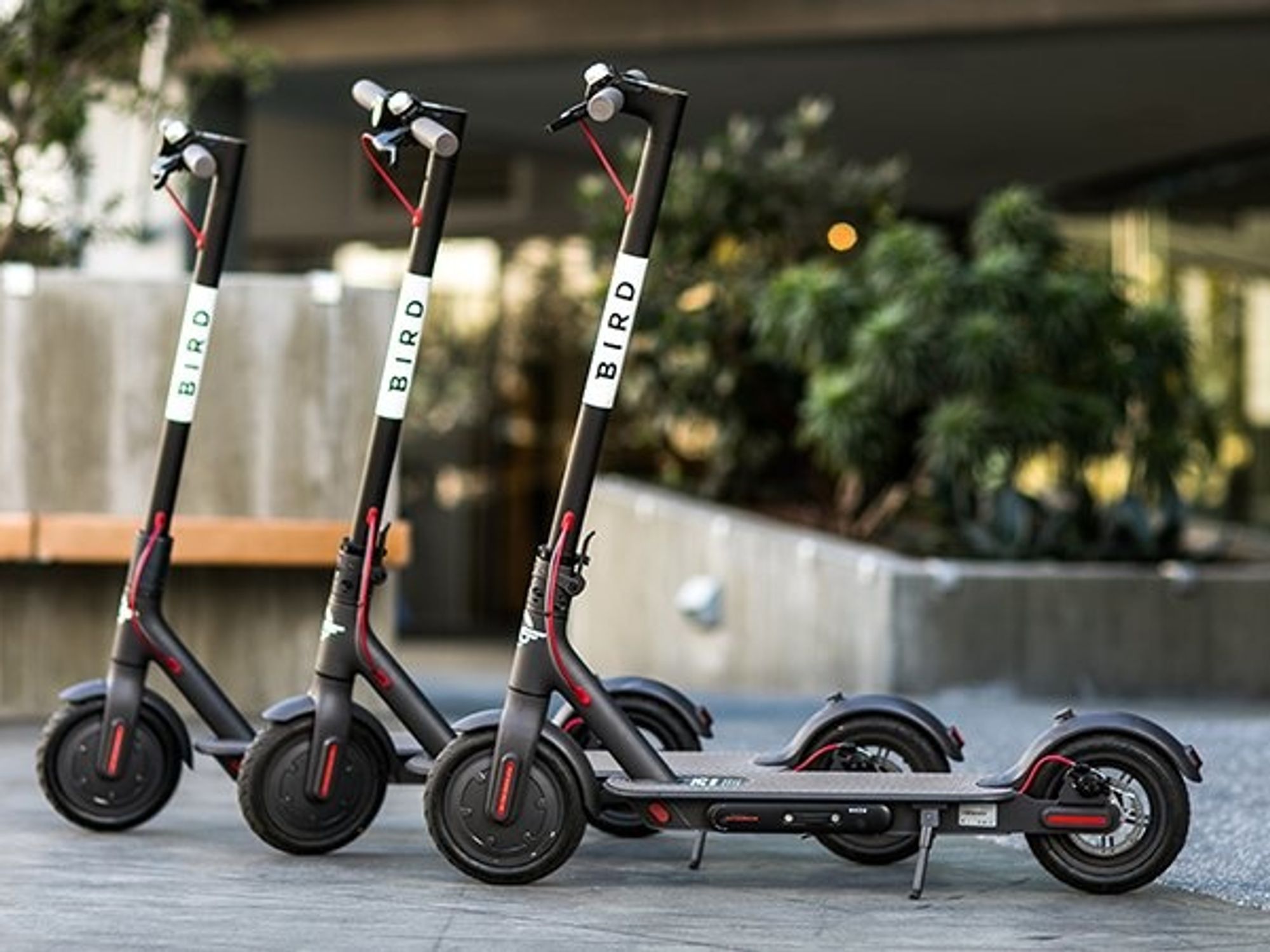Bird Says it Never Applied for PPP Loans. Why Does the SBA Say it Got Millions?
Ben Bergman is the newsroom's senior finance reporter. Previously he was a senior business reporter and host at KPCC, a senior producer at Gimlet Media, a producer at NPR's Morning Edition, and produced two investigative documentaries for KCET. He has been a frequent on-air contributor to business coverage on NPR and Marketplace and has written for The New York Times and Columbia Journalism Review. Ben was a 2017-2018 Knight-Bagehot Fellow in Economic and Business Journalism at Columbia Business School. In his free time, he enjoys skiing, playing poker, and cheering on The Seattle Seahawks.

Bird, the Santa Monica-based e-scooter unicorn valued at $2.77 billion dollars, is listed in a database of thousands of companies that the Small Business Administration (SBA) made public Monday that received Payroll Protection Program (PPP) loans. According to the SBA, Bird received a loan of between $5 and $10 million in late April to help it retain 341 jobs, which was a month after it laid off 406 employees via Zoom.
But in a statement, Bird said it never applied for the funds and it was trying to determine why it was included on the list. "Bird was erroneously listed as a company that filed for a PPP Loan," the company said.
A senior SBA official told dot.LA that if the lender did not cancel the loan after it was returned, the loan status may not be fully canceled and it would appear in the data. However, Bird said it never returned the loan because it never applied in the first place.
"We did not apply for nor did we receive a PPP Loan," the company said. "We decided as a company not to file an application as we did not want to divert critical funding from small and local businesses."
Bird's founder and CEO, Travis VanderZanden, elaborated on what happened in a tweet Monday afternoon referring to the company's lender; "It looks like Citi started an application while they waited for our decision on whether to formally apply. We discussed internally and told Citi we didn't want to apply via email on April 23rd. They confirmed that the temp app was cancelled that evening and never submitted."'
Hyperloop and Canoo also on the list
Other local companies included in the PPP database included Culver City-based Hyperloop Transportation Technologies, which received a loan in the range of $150,000 to $350,000 to retain 15 jobs and the Torrance electric maker, Canoo, which got a loan just last week of between $5-$10 million to save an undisclosed number of jobs. (dot.LA also received PPP funds of less than $150,000.)
Canoo has raised a billion dollars in venture funding, according to Pitchbook data, and some of have been critical of deep-pocketed venture backed startups taking money from the program.
"There is a money grab going on right now by some venture-backed startups that this program absolutely should exclude," wrote Albert Wenger, a partner at Union Square Ventures (USV), a New York-based early stage VC firm focused on investing in disruptive networks in April. "I urge everyone who is running a venture backed company with a lot of money in the bank and limited COVID-19 impact to think twice about applying for PPP."
Companies such as Sweetgreen and Shake Shack decided to return their loans in April after being criticized for depleting funds from a program meant to help small businesses.
But far from running out of money the PPP program still has some $130 billion left in the bank and on July 4, President Trump signed legislation extending the deadline to apply until August 8, 2020.
Ben Bergman is the newsroom's senior finance reporter. Previously he was a senior business reporter and host at KPCC, a senior producer at Gimlet Media, a producer at NPR's Morning Edition, and produced two investigative documentaries for KCET. He has been a frequent on-air contributor to business coverage on NPR and Marketplace and has written for The New York Times and Columbia Journalism Review. Ben was a 2017-2018 Knight-Bagehot Fellow in Economic and Business Journalism at Columbia Business School. In his free time, he enjoys skiing, playing poker, and cheering on The Seattle Seahawks.



 Image Source: Revel
Image Source: Revel
